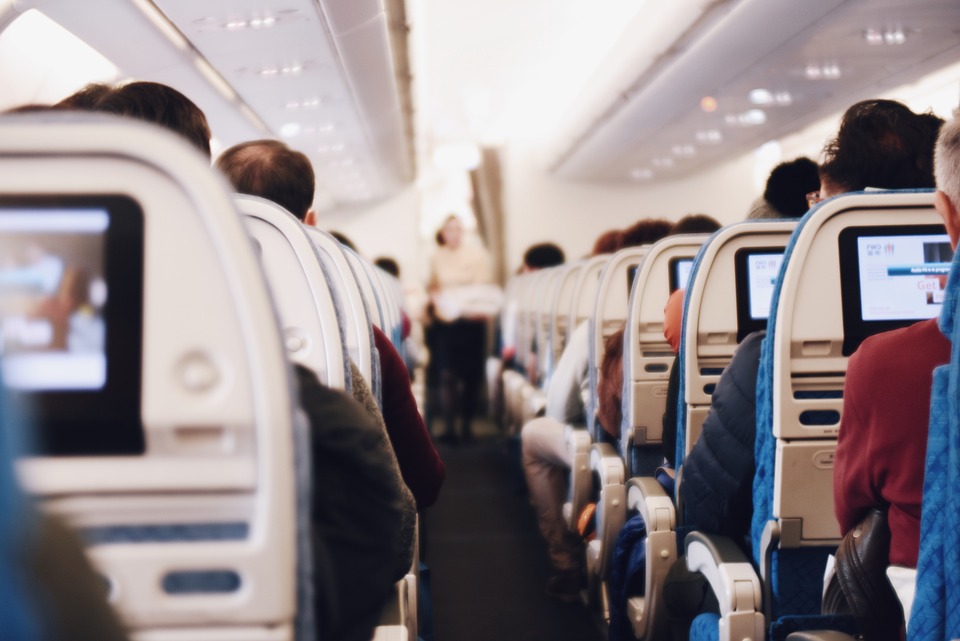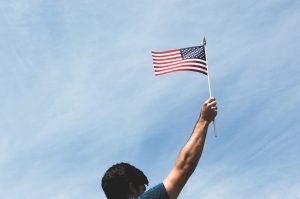Urgent U.S. Visa

The United States of America welcomes a large number of tourists, entrepreneurs, and talented individuals each year, issuing numerous visas. However, unexpected situations or circumstances may arise, requiring applicants to request an urgent U.S. visa when contacting the consulate. The process is mostly similar to obtaining a regular visa, but there are certain nuances to consider.
Let’s talk about them in detail.
Fast Processing for an Urgent U.S. Visa and Preconditions
Typically, the visa processing times for entry into the U.S. can vary from two weeks to several months, depending on factors such as the queue for appointments and the type of visa being applied for. However, there are mechanisms in place to shorten the waiting time and expedite the review of a visa case.
There is no official name for this mechanism; it is simply referred to as an “urgent U.S. visa.” In essence, it is a standard visa, such as B-1, B-2, F-1, M-1, J-1, etc., but under certain circumstances, the process for obtaining it can be expedited, allowing the applicant to bypass the normal waiting period.
How to Apply for an Urgent U.S. Visa
To obtain an urgent U.S. visa, you must present compelling reasons to the consulate as to why the visa should be expedited. Reasons like needing to urgently vacation in Hawaii or having purchased a last-minute tour with a departure in a week are not considered compelling.
You can typically apply for an expedited U.S. visa at the consulate under the following circumstances:
- Urgent surgical intervention;
- Unforeseen business circumstances that did not allow for advance visa application (e.g., if a negotiator falls ill and another person needs to be assigned for a meeting or summit);
- Rescheduled events in the U.S. that were beyond the applicant’s control and could not have been anticipated;
- Funerals of family members or close relatives;
- Other force majeure situations.
Situations that do not qualify for an expedited U.S. visa:
- Attending fairs or tourism;
- Attending summits that could have been scheduled in advance (e.g., annual events);
- Weddings, graduations, and other celebrations;
- Assisting with childbirth or helping relatives.
Analysis of acceptable reasons for travel and applying for an expedited U.S. visa
So, as we previously outlined the list of reasons that permit applying for an expedited U.S. visa, let’s now break down each of them.
Urgent surgical intervention

When applying for an expedited U.S. visa, this option is considered the most critical and is given top priority. Visa officers understand that there are situations where urgent surgical intervention is necessary and that the health of the applicant depends on it. Therefore, all other types of expedited visa applications are considered only after this one.
In some cases, visa officers may issue an expedited U.S. visa without an interview if the applicant and their accompanying persons submit a full set of documents along with a motivation letter from the attending physician and documents from the U.S. confirming the need for urgent treatment.
The documents must inform the visa officer about the treatment timeline, costs, and the availability of funds for treatment and/or stay in the U.S. If the documents are only from the attending physician in the country of visa application, this may slightly slow down the review process but not significantly compared to the previously mentioned situation.
Funerals of family members and close relatives, as well as repatriation of the body
In such cases, it is necessary to submit an additional letter from the funeral home conducting the postmortem care and other procedures related to the funeral along with the visa application.
When applying for an expedited U.S. visa, you should also provide the contact details of the funeral home, as visa officers may call the bureau to verify information regarding the deceased.
It is also important to provide a document confirming your relationship with the deceased. Family members and close relatives include the following: spouse, children, siblings, parents, grandparents, and grandchildren. All other individuals outside this list are not considered close relatives or family members.
Business circumstances that did not allow for timely visa processing
There are situations where it is necessary to obtain an expedited visa to address urgent business matters. In certain cases, a visa officer may make exceptions, understanding that such urgent matters often bring significant profits to the United States in the long run.
Obtaining a business visa in such cases requires the same documents as for a regular visa, except for additional proof of why the applicant needs to expedite the visa process.
It is essential to approach the situation honestly and provide the consulate with all relevant documents confirming the urgency. Furthermore, if this request is accompanied by information demonstrating real benefits to the United States, such as economic gain, and also shows the potential loss of that benefit in case of a visa denial, the visa officer may agree to expedite the process. However, if the visa officer perceives that the situation could have been planned in advance and the applicant’s actions led to the urgency, they may deny the request.
How to schedule an expedited U.S. visa appointment

The process of scheduling an expedited visa appointment in the U.S. is essentially the same as for a regular visa. According to the procedure, you must complete the DS-160 form, pay the consular fee, and schedule an appointment for the earliest available date. Then, through your personal account on the consulate’s website, you can request to move the appointment to an earlier date. When requesting to reschedule the appointment, it’s important to politely, but without exaggeration, explain to the embassy staff why you need to change the date to one that is sooner or aligns with your schedule. The focus should be on providing documents that clearly support the urgency of your request. There’s no need to send a large stack of papers—only submit the specific documents that justify the need for an expedited visa, as only one request is allowed, and repeated requests won’t be considered by the consulate.
Within a few hours, given the urgency of such requests, the consulate will respond via the email address you provided in your account during registration. If approved, you will need to log back into your account and cancel the existing appointment that is still active once your request is accepted.
After canceling the current appointment, you will need to create a new appointment, following the same steps as before, but this time you will see different available dates in the calendar. Once approved, the system will treat your account differently, allowing you to choose from more available dates, even those that were previously booked.
After completing the re-appointment process, your request will undergo further moderation, and there is still a possibility that, despite the prior approval for an expedited appointment, the consulate may deny your request, stating that the reason for the trip does not meet the requirements for an expedited U.S. visit. If this happens, you don’t need to cancel anything—you can use your original appointment.
It’s important to note that if your request for an expedited visa appointment is denied, the consular fee is non-refundable, but the funds you’ve already paid can be used for the standard visa application process.
What Not to Do When Applying for an Expedited U.S. Visa
It’s quite common for applicants, especially those seeking an expedited U.S. visa, to attempt submitting falsified documents. Some applicants hide the fact that they have relatives in the United States, while others even receive help from these relatives by providing documents that falsely justify the need for an expedited visa.
In certain cases, this might actually speed up the process, but we strongly advise against this dubious path. Once you’re caught trying to deceive the consular system, the consular officer will not only deny your visa request but also place a permanent note in your file indicating that you misled the consular officer. This note will remain in the system for life, and even if a different officer reviews your case in the future, they will be able to see this mark.
Chances of Getting an Expedited U.S. Visa
There is no statistical guarantee of receiving an expedited U.S. visa. Let’s just say—you can always improve your chances, but there are several factors that affect the outcome.
Every time a request for a visa is submitted, consular officers and their assistants thoroughly review the applicant’s case, check social media, and search databases to understand who they are dealing with.
Even though the processing time for an expedited visa is shorter, consulate staff have sufficient time allocated for reviewing such cases, ensuring they can thoroughly examine your application. That’s why it’s essential to approach the visa process with the utmost care and be prepared to provide all the necessary documents the officer may ask for.
Additionally, if during the interview the consular officer senses that you’re being dishonest, they will mark your case accordingly, leading to the same consequences as mentioned above, leaving a record of your inclination to deceive.
If you attempt to deceive a consular official, you should not expect a positive outcome for your expedited visa request.
At E-MIGRATING, we strongly recommend taking ample time to prepare for your interview and gathering all necessary documents. Avoid deceit and dishonesty, as this could lead to irreversible negative consequences.
So, we’ve covered the key points regarding obtaining an expedited visa. If you found this article helpful and want to learn more about various visa types, life in the U.S., and adapting to a new country, we recommend checking out our BLOG and GUIDES sections. There, you’ll find plenty of interesting and, most importantly, useful information.
Table of Contents


